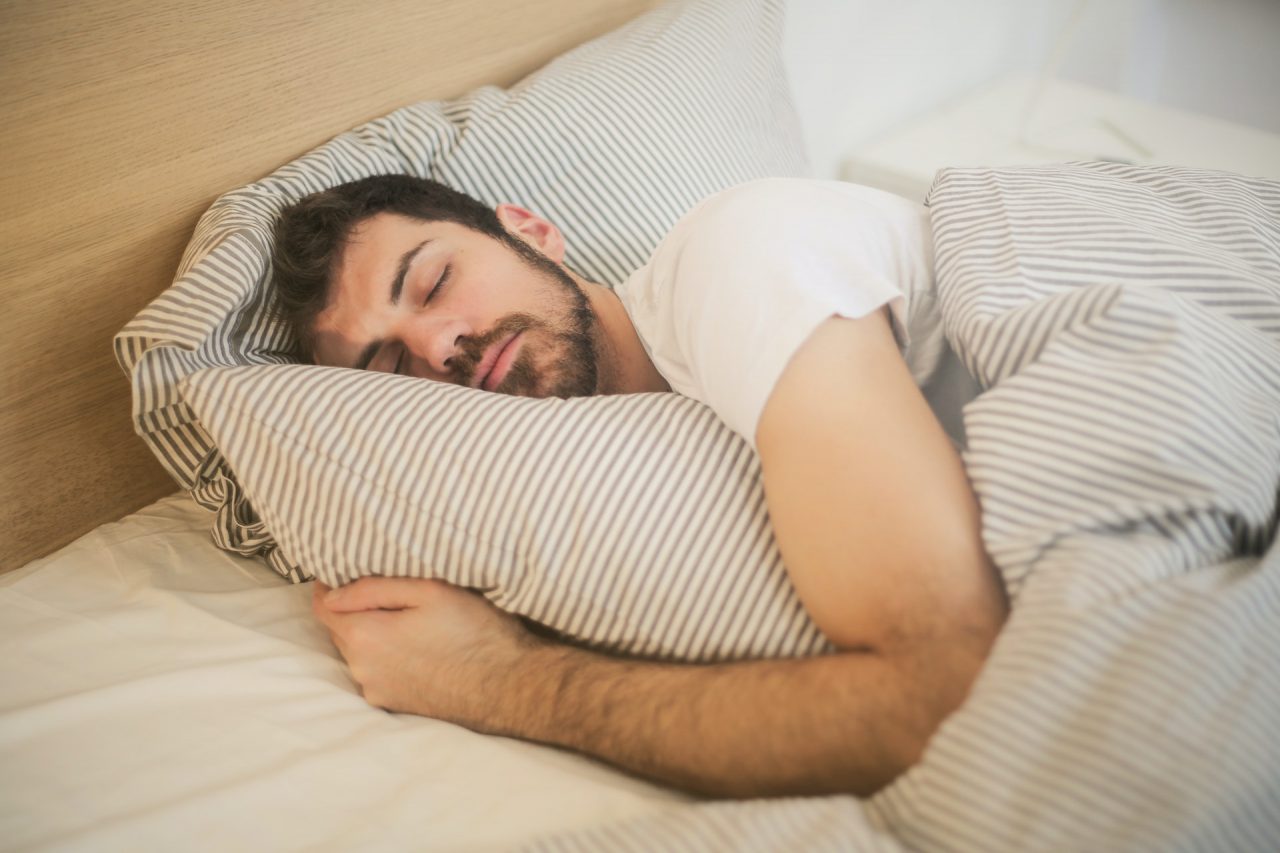
We get so carried away brainstorming about the best possible combinations of training, exercises, loads, proper nutrition, etc. But we forget about the most important foundation for all of that:
SLEEP.
We are all aware that something special happens when we wake up fully rested and satisfied. However, only a few have studied in depth what exactly is the process behind it all.
In the following text, we will explain:
- what exactly happens during sleep,
- what is the importance of the circadian rhythm (the influence of the day and night shift on the secretion of certain hormones: cortisol, melatonin, growth hormone),
- and how to improve the quality of sleep.
Circadian rhythm
The first question you should ask yourself is:
Do you go to bed on time?
Unfortunately with today’s way of life and the jobs we do, some are not able to comply with this. But if you are not one of those who work night shifts for a living, pay close attention to the following!
At sunrise (6 a.m.), our receptors in the brain register light rays, and the hormone CORTISOL is released.
The so-called stress hormone, which is responsible for the action and thereby leads to the breakdown of accumulated nutrients in the body (catabolism) in order to create the necessary energy.
Often people are upset by the very word stress hormone. It must be clear to you that this does not in itself mean something bad. It’s simply that the shift of stress and recovery represents the essential functioning of our life and progress. Adaptation to stress alone makes the individual better.
The level of the hormone cortisol from 6 a.m. gradually increases and reaches its peak around noon (12 p.m.). After this, it is maintained at that level for a little while and as the day goes on it becomes smaller and smaller. At sunset (6 p.m.), the cortisol level becomes minimal and remains at these levels throughout the night.
This hormone actually represents the period of the day in which we have the most energy for physical and mental processes. With poor habits, we disrupt the proper functioning of this hormone. This leads to various problems from chronic fatigue, insomnia, heart problems, diabetes, obesity, and even back pain.
What leads to an increase in the secretion of cortisol are:
- coffee,
- simple carbohydrates,
- nicotine,
- training in the late evening hours,
- stress,
- increased artificial lighting (during the evening hours).
That is why all types of his stimulation are not recommended after 8 p.m.
On the other hand, there are so-called recovery hormones (melatonin, growth hormone) that have a completely opposite role in our body than the stress hormone (cortisol).
For example, another name for melatonin is the hormone of darkness. The secretion of these hormones begins to increase exponentially after sunset (6:00 p.m.), to reach maximum values around 10:00 p.m. This will be maintained for a few more hours (until 2:00 a.m.).
Research has shown that our body is most capable of physical recovery from 10pm to 2am, and psychological recovery from 2am to 6am, due to the increased secretion of melatonin and growth hormones.
It is also important to note that if these time intervals are skipped, or if one goes to sleep later (e.g. at 1 a.m.), the given period for the most effective recovery is automatically unfulfilled. This means that if you go to bed at 1 a.m. you have lost 3 hours of the most effective physical recovery.
After 2 hours at night, the level of the recovery hormone begins to gradually decrease. It reaches minimum values at sunrise (6 a.m.) and remains there until the next sunset. Proper rest in periods when the secretion of these hormones is increased leads to increased anabolism (creation of larger units from smaller ones, e.g. proteins from amino acids), as well as renewal of all types of cells in the human body.
What leads to increased secretion of recovery and growth hormones is:
- adequate rest,
- sleep at the right time that coincides with the natural biorhythm of a person (go to bed between 10 and 11 p.m.),
- darkness (no artificial lighting during sleep, e.g. TV on),
- good previous hydration and nutrition (at the latest a light meal one hour before bedtime, ideally two hours before).
SPR conclusion
Practice has shown that sometimes it is enough just to regulate your sleep in order to reduce certain complaints or improve the result (e.g. the result caused by training). We often meet clients in recreation and sports who train persistently, full of motivation. But they forget the fact that the effect of training is achieved during rest, when our body adapts to the challenges we have previously given it.
In order to establish quality sleep, we suggest you follow the next few tips:
- Go to sleep by 11 pm
- Minimize artificial lights during sleep as much as possible (including internet router lights), a completely dark room is ideal
- Avoid consuming caffeine after lunch
- Avoid taking simple sugars after 6 pm
- Eat healthy and eat no later than 2 hours before going to bed
- Drink as much water as possible
- Be physically active, but do not practice intensive training after 9 pm



